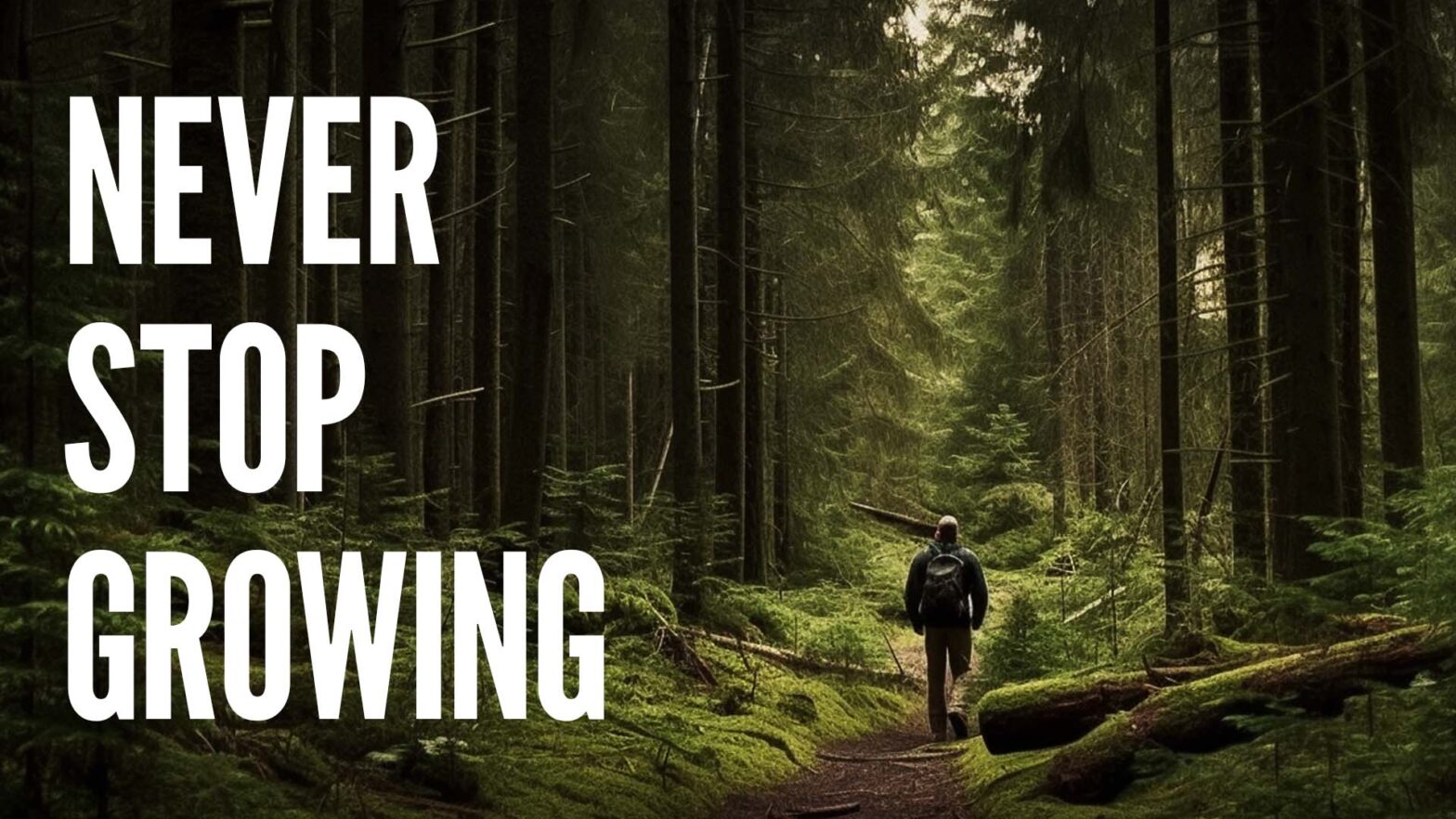We’ve all heard the phrase, “Knowledge is power.” It’s been echoed throughout the hallways of academia, whispered in the huddles of businesses, and frequently typed in online self-improvement groups.
The desire to learn, to know, and to conquer the unknown has been branded as the golden ticket to success by just about every leader in the world. The more you know, the more successful you become — or so we’ve been led to believe.
Contrary to what most of us have been conditioned to believe, self-improvement is not a straight path paved with textbooks, online courses, or degrees. It’s a winding journey full of potholes, detours, dead-ends, and breathtaking views. It involves looking inward, confronting the boulders blocking our path, rolling up our sleeves, and doing the work to move them out of the way.
The True Nature of Self-Improvement
True self-improvement beckons us to step out of our comfort zones, to stare our problems in the face, and to take decisive action.
It’s not just about gathering knowledge or perfecting a new skill. It’s more of an intricate, transformational journey that calls for a deep dive into the heart of our challenges and the courage to face them head-on.
Think of the problems and obstacles that you encounter as hidden treasures rather than burdens. Every problem carries an opportunity for growth and brings you one step closer to being the best version of yourself.
It’s not about collecting pieces at random, hoping they’ll form a complete picture. It’s about understanding each piece, examining it, and knowing where it fits in the grand vision of your goals.
The Role of Problem-Solving in Personal Growth
Imagine standing at the edge of your comfort zone. It’s familiar, predictable, and, above all, safe. But it also keeps you stagnant, rooted in the same spot, with the same view, repeating the same routines. And while it may feel comfortable, it is not where growth happens. Growth, you see, thrives in the face of challenges.
When we embrace challenges, we step into the unknown. We push our boundaries and our limitations. We expose ourselves to new situations, new people, and new ideas. We start seeing the world from different perspectives, and this shift in perspective is what drives personal growth.
Personal Story
I remember the first time to ran a group working session with clients that had twice my experience in the professional workforce. I remember my palms sweating and my voice quivering as I screen-shared a mini presentation deck on the progress of the project we were working on. Needless to say, I was incredibly nervous and intimidated.
The challenge I faced was losing confidence in front of a large group. The problem to solve was that I needed to practice slowing my speech and avoid rambling, so I wrote a new sticky note every time before a working session that reminded me to “avoid filler words and talk slower.” The act of writing it down before the next 10 meetings was enough to bake those rules into my mind on how to lead a meeting with more confidence.
A Growth Mindset to Continuous Self-Improvement
Self-improvement isn’t an overnight process, and there are no shortcuts. It’s a continual cycle of learning, facing challenges, and growing from those experiences.
Coined by psychologist Carol Dweck, a growth mindset is the belief that our abilities and intelligence can be developed with effort, learning, and persistence. It’s about recognizing that we are not bound by our current capabilities, but rather, we are works in progress, capable of growth and development.
One key aspect of the growth mindset is the ability to learn from criticism rather than being deflated by it. Another essential feature of the growth mindset is resilience in the face of setbacks.
Adopting a growth mindset is not about ignoring our deficiencies or pretending they don’t exist. Instead, it’s about acknowledging our areas of weakness and actively working to improve upon them. It’s about setting high standards for ourselves yet understanding that mistakes and setbacks are not only inevitable but crucial components of our growth.
How to Adopt a Growth Mindset
There are dozens of more tips online, and I’m sure can think of a few yourself, but here are three underrated ones that you should always consider:
Learn from Criticism
Use constructive feedback as a tool for improvement. Instead of taking it personally, ask yourself what you can learn from it.
Practice Self-Compassion
Be kind to yourself when you make mistakes or face setbacks. Remember that everyone has areas for improvement and that growth is a journey, not a destination.
Replace “I Can’t” with “I Can’t Yet”
Understand that abilities and skills can be developed over time. If you find something challenging, remind yourself that you are in the process of learning.
Closing Thought
The journey of self-improvement is a road paved with resilience, patience, and perseverance. It’s about constantly setting the bar higher and constantly pushing yourself to improve and optimize. Stick with it and remember that every step, no matter how small, is progress.
